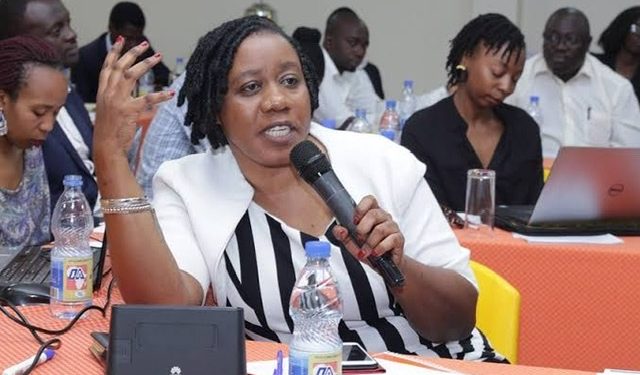By CHIMPREPORTS
By Dr. Sarah Bireete
The leaked minutes of the Parliamentary Commission where members awarded themselves an exorbitant figure of UGX 1.7 billion as a service award has caused heated debate among Uganda citizens especially on social media. While there is a lot that can be discussed regarding the moral and legal aspects of the process, an important angle to consider is the Constitutional lacunae.
Chapter 6 of the Constitution which provides for the establishment, composition and functions of Parliament provides for the Leader of Opposition under Article 82A and states that Parliament shall determine the status, role and functions, benefits and privileges attached to this office. Further, Article 85 gives Parliament authority to determine emoluments and benefits of MPs which makes it self-budgeting and self-accounting. Further, Article 87A establishes the Parliamentary Commission whose composition and functions are specified in the Administration of Parliament Act in Sections 2 and 6 of this Act.
Many analysts have referred to Sections 9(i) and 12A of the Leadership Code Act while calling out Hon. Mathias Mpuuga to resign his position as a Commissioner of Parliament and refund the money imputing that it was wrong for him to participate in the Commission of Parliament deliberations where his award of UGX 500M was debated and approved.
Section 9(i) states that “except under special circumstances, a leader is not expected to take part in a discussion involving self-enrichment on his or her part. It’s important to note that the special circumstances under which Hon Mathias Mpuuga participated in these deliberations are a creature of the Constitution under Articles 82A, 85 and 87A explained above.
We need to read the Leadership Code Act together the Administration of Parliament Act and Chapter 6 of the Constitution. In this instance, Parliament falls under special circumstances described under Section 9(i) of the Leadership Code Act because the self-budgeting function of Parliament is a creature of the Constitution and Hon Mathias Mpuuga should not be faulted as an individual. It’s also important to note that decisions of the Commission of Parliament are presented to the Budget Committee and the whole House for approval. It’s not a one man decision.
However, more importantly, , we need to address the issue of the self-budgeting function of Parliament and the possible power struggle between the appointed Leader of Opposition and the leader of the majority political party in Parliament. The self-budgeting provision of Parliament was created by the Constituent Assembly in a bid to promote the independence of Parliament from the Executive by preventing undue influence.
The same Constituency Assembly, however, did not extent this school of thought to the judiciary which is also shielded from undue influence of the Executive under Article 126 that protects its independence. This was an oversight on the part of the Constituency Assembly. Drawing comparisons from the UK Parliament; after the MPs’ expenses scandal in 2009 the UK Parliament established the Independent Parliamentary Standards Authority (IPSA) in 2010 which decides MPs pay and what they can claim as business costs. The IPSA decisions are made independently from Parliament to ensure that public money is spent appropriately with transparency and fairness.
It is therefore imperative that Ugandans should cause an amendment of the Constitution to remedy this lacunae caused by the self-budgeting function of Parliament and create the Standard Salaries and Remuneration Commission that will help harmonise all benefits of MPs and other public officials who draw salaries from the consolidated fund.
Lastly, on the question of a possible power struggle between the Leader of the Majority Party in Parliament and the appointed Leader of Opposition, let’s amend the Constitution to provide that the Leader of Opposition in Parliament shall be the first runners up in the presidential elections, who will then become ex officio Members of Parliament. This will prevent a possible power struggle that exists in the current arrangement. We can then go ahead and institutionalize all the benefits of the occupants of this office including a retirement package because they will draw their mandate directly from the people in elections. It’s important to note however, that in the absence of this proposed amendment, it’s not unusual to provide for retirement benefits for the Leader of Opposition. Kenya’s Leader of Opposition is chosen in a similar way like ours and is given retirement benefits including pension, gratuity, medical coverage and security as provided for under the Retirement Benefits Act, 2015.
Let’s expand this debate for the betterment of our multiparty democracy.
Dr. Sarah Bireete is the Executive Director, Center for Constitutional Governance (CCG) and Chairperson of East and Horn of Africa Elections Observer Network (EHORN)








Discussion about this post